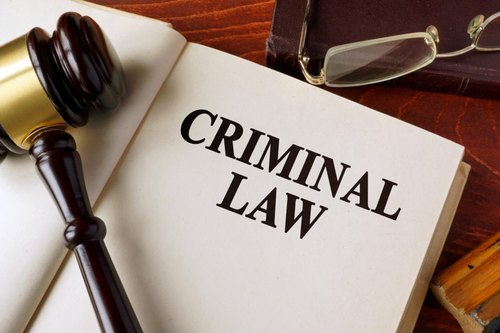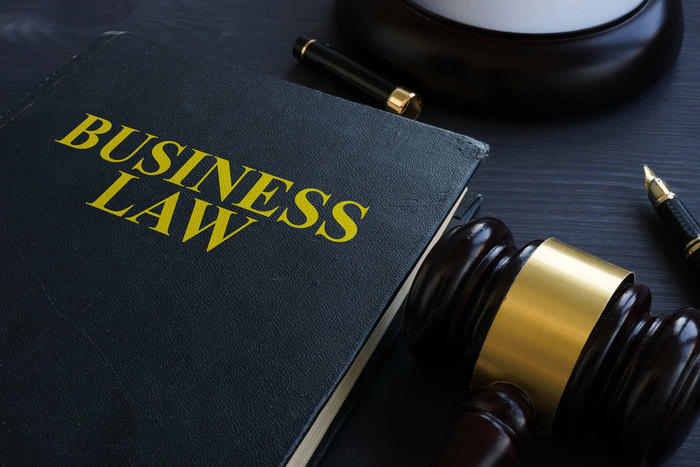Table of Contents
What Is Criminal Defense?
Criminal defense refers to the legal strategies and efforts made to defend individuals or entities accused of committing a crime. The primary goal of criminal defense is to protect the accused from unfair treatment by law enforcement and the judicial system, minimize the consequences of criminal charges, and, in many cases, have the charges reduced or dismissed.
Criminal defense attorneys specialize in defending clients who have been charged with criminal offenses. These offenses can range from minor infractions like traffic violations to serious felonies such as murder or drug trafficking. A criminal defense attorney’s role is to investigate the case, analyze evidence, represent the client in court, and negotiate favorable plea deals if appropriate.
Types of Criminal Charges
Criminal defense lawyers handle a broad range of charges, including but not limited to:
1. Drug Offenses
Drug-related crimes can vary from simple possession to distribution and trafficking. Defendants might face charges for possessing illegal substances, manufacturing or distributing drugs, or driving under the influence of drugs.
-
Example: A criminal defense lawyer might represent someone accused of possessing marijuana or defending someone facing trafficking charges for selling drugs.
2. Violent Crimes
Violent crimes involve the use of force against others and can include offenses such as assault, battery, domestic violence, robbery, and homicide. Defending against violent crime charges requires a comprehensive strategy, often involving the challenging of witness testimony and evidence.
-
Example: A criminal defense attorney may represent someone accused of assaulting another person, helping to mitigate the severity of the charges.
3. Theft Crimes
Theft crimes encompass a wide range of criminal offenses involving the unlawful taking of property, such as burglary, shoplifting, grand larceny, and auto theft. Penalties can vary depending on the severity of the theft and whether it was classified as a misdemeanor or felony.
-
Example: A defense lawyer may assist someone accused of stealing property and may work to negotiate reduced charges or seek alternative sentencing options.
4. White-Collar Crimes
White-collar crimes involve non-violent criminal activities, typically associated with financial gain and often committed by individuals in professional settings. These crimes include embezzlement, fraud, insider trading, and tax evasion.
-
Example: A criminal defense attorney may defend a corporate executive accused of insider trading or someone charged with fraud for misappropriating funds from their employer.
5. DUI/DWI
Driving Under the Influence (DUI) or Driving While Intoxicated (DWI) are serious charges that can lead to fines, license suspension, and even jail time. Criminal defense attorneys specializing in DUI/DWI cases can challenge evidence such as breathalyzer test results or field sobriety tests.
-
Example: A criminal defense attorney may represent someone arrested for driving under the influence of alcohol, potentially challenging the legality of the arrest or the accuracy of the breath test.
6. Sex Crimes
Sex crime charges include allegations such as sexual assault, child molestation, indecent exposure, and statutory rape. These cases often carry significant social stigma, and penalties can be severe, making skilled legal representation essential.
-
Example: A https://yes-ouisispace.com/ lawyer may work to clear the name of someone wrongfully accused of sexual assault or help reduce charges if the evidence is unclear.
7. Homicide and Manslaughter
Murder and manslaughter are among the most serious criminal offenses, with severe penalties ranging from lengthy prison sentences to the death penalty in some jurisdictions. Criminal defense attorneys play a critical role in defending clients against charges of homicide and manslaughter.
-
Example: A criminal defense attorney may work on a case where a client is accused of killing another person and aim to reduce the charges to manslaughter or seek a lesser sentence.
Role and Responsibilities of a Criminal Defense Attorney
A criminal defense attorney performs a wide variety of functions in defending a client accused of a crime. Here are some of the key responsibilities:
1. Providing Legal Advice
Criminal defense lawyers offer critical legal advice to their clients, helping them understand the charges they face and the potential consequences. They explain their legal rights and the options available, such as pleading guilty, negotiating a plea deal, or going to trial.
2. Investigating the Case
An effective defense begins with thorough investigation. Criminal defense attorneys review evidence, interview witnesses, and work to uncover facts that may be in their client’s favor. In many cases, they may discover errors or inconsistencies in the prosecution’s case, which could result in a dismissal or reduction of charges.
3. Representing Clients in Court
Criminal defense attorneys represent their clients at every stage of the criminal process, including pre-trial hearings, motions, and trial. They present evidence, cross-examine witnesses, and make legal arguments to advocate for the best possible outcome for their client.
4. Negotiating Plea Deals
In some cases, a defense attorney may negotiate a plea deal with the prosecution. This allows the defendant to plead guilty to a lesser charge in exchange for reduced penalties or alternative sentencing. A criminal defense attorney’s skill in negotiations can be instrumental in securing a favorable outcome.
5. Protecting the Client’s Rights
A key role of a criminal defense lawyer is to ensure that the client’s rights are not violated throughout the legal process. This includes ensuring that the client is not subjected to unlawful searches and seizures, forced confessions, or other violations of constitutional rights.
6. Appealing Convictions
If a defendant is convicted, a criminal defense attorney can pursue an appeal to challenge the conviction or sentence. They review trial records for legal errors or procedural mistakes and argue the case before an appellate court to seek a reduction in the sentence or a new trial.
Benefits of Hiring a Criminal Defense Attorney
Hiring an experienced criminal defense attorney can offer several key benefits, including:
1. Expert Knowledge of Criminal Law
Criminal law is complex and constantly evolving. A skilled defense attorney has the knowledge and expertise to navigate the legal system effectively. They understand the nuances of criminal law and can develop the best legal strategy for your case.
2. Ensuring a Fair Trial
A criminal defense attorney ensures that their client receives a fair trial by upholding their legal rights, challenging unlawful evidence, and protecting them from unfair treatment by law enforcement or the court.
3. Reducing Potential Penalties
An experienced defense attorney can help minimize the consequences of a criminal conviction by negotiating plea deals, advocating for reduced sentences, or presenting mitigating evidence that may influence the court’s decision.
4. Protection from Mistakes
Navigating the criminal justice system without legal representation can lead to mistakes that may negatively impact your case. A criminal defense attorney can help you avoid common missteps and ensure that you follow the correct legal procedures.
5. Emotional Support
Facing criminal charges can be a stressful and overwhelming experience. A criminal defense lawyer provides not only legal support but also emotional guidance through the entire process. They can help reduce anxiety by keeping you informed and reassuring you throughout the legal journey.
How to Choose the Right Criminal Defense Attorney
Choosing the right criminal defense attorney is essential to ensuring the best possible outcome for your case. Here are some factors to consider when selecting an attorney:
1. Experience and Specialization
Look for an attorney with experience in criminal defense and a strong track record of handling cases similar to yours. Whether you’re facing a DUI, a drug offense, or a violent crime charge, selecting an attorney who specializes in your specific type of case is crucial.
2. Reputation and References
Research the attorney’s reputation by reading online reviews, asking for referrals, or checking with local bar associations. Word-of-mouth recommendations from friends or family can also be valuable when choosing an attorney.
3. Communication and Accessibility
Choose a criminal defense attorney who is responsive and communicative. You want an attorney who will keep you updated on the progress of your case and answer your questions promptly.
4. Initial Consultation
Many criminal defense attorneys offer a free initial consultation, during which you can discuss your case and gauge the attorney’s approach. This is a great opportunity to assess the attorney’s expertise, demeanor, and willingness to fight for your best interests.
5. Cost and Payment Plans
Criminal defense attorneys may charge an hourly rate, a flat fee, or a retainer, depending on the case. It’s important to discuss fees upfront and ensure that you understand how the attorney charges for their services.
Conclusion
Criminal defense attorneys play an essential role in ensuring that individuals charged with criminal offenses are afforded their constitutional rights and receive fair treatment within the legal system. Whether you are facing minor charges or serious criminal accusations, having a dedicated and experienced criminal defense attorney by your side can make all the difference.
By hiring an attorney who understands the complexities of criminal law and is committed to protecting your interests, you can improve your chances of achieving a favorable outcome and securing your future.



